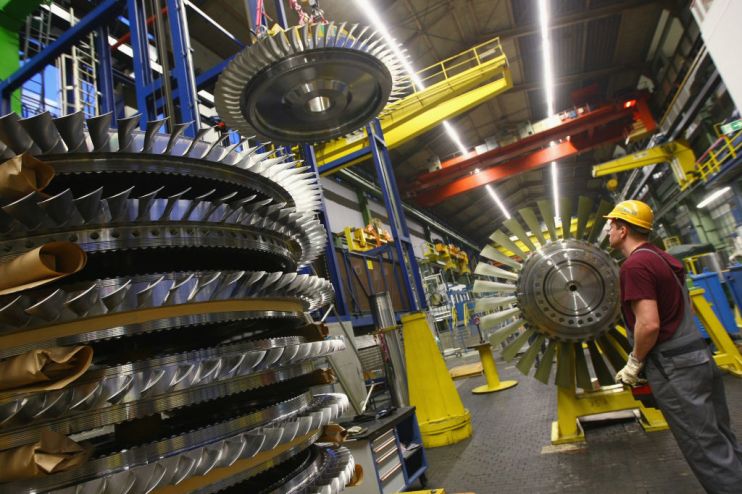Eurozone PMI: Manufacturing slump eases despite coronavirus fears

The Eurozone economy picked up pace in February as manufacturing activity showed encouraging signs that its slump was easing.
The sector’s resilience, despite fears the coronavirus could cause a further deterioration, helped push business activity to a six-month high.
The manufacturing purchasing managers’ index (PMI) rose from 47.9 in January to 49.1 this month.
Although it is still below the 50 mark, meaning the majority of businesses are reporting contraction, it is the highest value in 12 months.
The improvement has largely been buoyed by an end to the prolonged slump in Germany.
Its flash manufacturing PMI was up from 45.3 to 47.8, which is a 13-month high. However, France’s factory activity decreased slightly.
Chris Williamson, chief business economist at IHS Markit warned that the “outlook remains highly uncertain”, however.
“Notably in respect to the potential for further disruptions to supply chains, travel, tourism and demand arising from the coronavirus outbreak,” Williamson said.
“In particular, the widespread delivery delays seen in February bode ill for production in March unless new deliveries can be secured.”
The euro rose by 0.3 per cent following the release of the figures to trade at $1.081.
German concerns
Chief market analyst at CMC Markets, Michael Hewson, said Germany’s economy remained a concern despite the positive data.
“Germany remains the bigger concern as Europe’s largest economy and a huge industrial base, and rather surprisingly its latest manufacturing number was better than expected, coming in at 47.8, and a thirteen-month high” Hewson said.
“This better than expected number has seen the euro edge a little higher, however any after effects of the virus may well make themselves known a little farther out.”
The slower pace of decline in Germany’s manufacturing data was largely a result of new domestic orders, with foreign orders falling markedly.
Goods producers in Germany said there had been “a slump in both exports and sentiment, linked to the impact of the coronavirus on activity in China and the wider region”.
The services sector data held firm with its PMI rising to 52.8 from 52.5, pushing the composite index up to 51.6 – its highest since August.